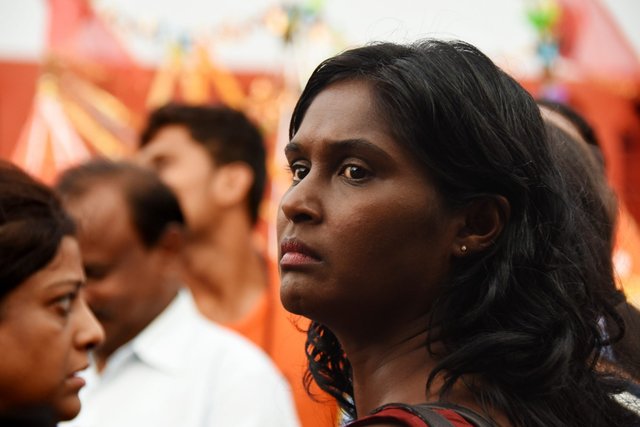
A few months ago I was visiting my friend in Chennai, a city of 7 million on the eastern coast of India. Her office was smack-dab in the center of the city.
I asked if there was an ATM nearby so I could withdraw some cash before we went to lunch.
“Sure, but we better leave now. Recently a lot of the ATMs around here don’t have cash,” she said.
“Huh?” My ignorant Western mind didn’t understand.
“Yeah, we might have to walk for a while.”
“Okay...”
She walked with me to the closest ATM…which was just down the street. When I put my bank card in, it popped up with a message saying sorry, ATM out of service.
We walked to the next one a few minutes away. Same story.
And thus began our journey to find an ATM that actually worked.
Every time we’d pass a convenient store or shop my friend would yell at someone standing nearby and ask them if that ATM was working.
It wasn’t my card, by the way. I’d used it when I got to the airport and it worked just fine. These machines literally had run out of money.
After checking seven different ATM machines and about 45 minutes of walking through garbage-infested streets, we finally found one that had cash.
There was a line of people standing in front, of course! I queued up and eventually got my cash. In total it took over an hour for me to find an ATM -- unheard of in the US!
That was an eye-opening experience about the access to and control of money.
No place to turn
Okay, so if you live in a developed country you probably don’t have this problem…your ATM machines always spit out cash and you can use your credit card to buy your dinner or your flight ticket.
But just imagine for a second what it would be like if all the stores you went to didn’t accept credit cards by default. Simply because the infrastructure wasn't there and the cost was too high to do install credit card machines. Like it is in India.
“Not so bad,” you think. You’d just have to carry around cash. Easy enough, right?
But what if you went to the ATM and you couldn’t get cash out? How would you pay for anything?
Eventually, you wouldn’t trust the system, so you would start hoarding cash under your mattress. You and one billion other people. This would be your so-called ‘savings.’
It’s hard to build wealth this way. Pleas and protests to the government would be met with silence.
And then one day the government says something about wanting to “battle terrorism,” so they demonetize certain banknotes and say that 86% of the cash in the country is no longer usable (FYI, this is exactly what happened in India a few months ago).
WTF?
They say you have to go trade in your old cash for new cash— meaning the ones you have stuffed under your mattress can no longer be used to buy stuff.
You’re barely scraping by, ugh…and now this. You’re pretty pissed off at this point.
But you take a few deep breathes and go to the bank, along with millions of others, and wait patiently to exchange your old cash for new cash so you can eat and feed your children.
The lines are miles long. People become savages — understandably so, their livelihoods are at stake — and some are even trampled to death. Think Black Friday lines at Walmart, times a gazzilion.
You finally get your cash. Your trust of the government is at an all time low. You come to a realization, one that you grasped an intellectual level for years, but now was made viscerally apparent to you on the experiential level.
Those who control the money control everything.
Posted from my blog with SteemPress : https://mishayurchenko.me/2019/04/02/3-miles-and-7-atms/